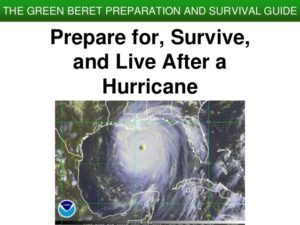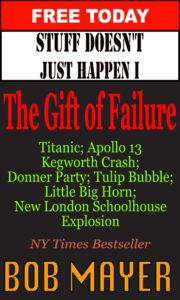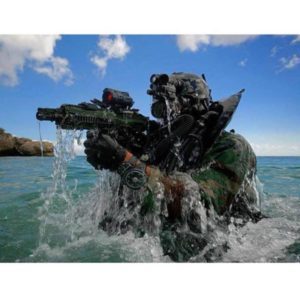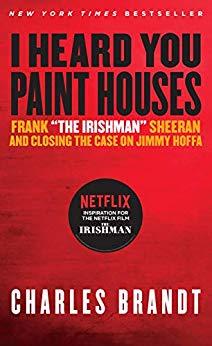Bob Mayer's Blog, page 55
August 27, 2019
How To Prepare for and Survive a Hurricane

Evacuate.
That sounds so simple, yet just today I read an article while researching about a family killed because they refused a mandatory evacuation for Hurricane Sandy. Their house had been robbed when they evacuated previously and they didn’t want that to happen again. What happened this time makes a robbery look like such a not bad thing. Hurricanes, unlike tornados, move slowly. So you will have warning and time to get away.
A slideshow on this and other free survival information is available HERE.
Most of the preparation for a
hurricane you’ve already done in preparing your house. There are some special actions
you can add:
Board and tape windows. Plywood is
best for covering window. For taping, use alligator tape, not duct tape.
Masking tape is not useful.
Fasten your roof down to the house
with tie down straps. Really long ones. You need to have these on hand before
the hurricane is coming.
Turn off gas and/or propane.
Clear away debris that can be
picked up and smash into the house and windows.
Secure all outdoor furniture. If
you have a pool, put the furniture into the water.
Make sure your garage doors are closed.

Looking at the deaths from
Hurricane Sandy, over half of them were from falling trees/limbs. Make sure the
trees around your house are properly trimmed and if old and unstable, pay to
have them removed. It’s worth your life and your family’s lives.
As the storm approaches, turn your
freezer and refrigerator to their coldest settings.
Pack any coolers with as much ice
as possible. Use them first instead of opening the refrigerator door. If you
grew up like I did, your dad was always yelling at your for opening the fridge
door anyway.
Fill bathtubs with water.
Make sure all vehicles are topped
off.
Know where the closest shelter is
for you and for your pets.
If you have to evacuate leave a
note saying where you are going.
Unplug everything before leaving.
Turn off electricity, gas and
water.
After the hurricane passes, beware
of flooding.
Use flashlights or chem lights,
never candles.
Do not use tap water after the
storm until you are sure it isn’t contaminated.
EVACUATE.
If you did not evacuate and it
strikes, then you are in tornado mode. Go back a couple of pages ago and do
what’s listed.
August 22, 2019
How Do Delusion Events Fool Us?

Part of Stuff Doesn’t Just Happen: The Gift of Failure, currently free on Kindle, is defining what a delusion event is and how it pays a role in bringing about disaster.
A delusion event is more commonly called a “close call”. How often have we had one? Did we change our behavior afterward to avoid another one?
We often look at narrow escapes or near misses as ‘fortunate’ events where disaster was averted; indeed, we get to the point where we normalize near misses. Instead, we need to look at these ‘fortunate’ events as cascade events where we came close to catastrophe and were simply fortunate that we didn’t hit the final event. Relying on luck is a very dangerous mindset yet we immerse ourselves in it on a daily basis. We often call it ‘dodging the bullet’ forgetting that when a bullet hits, the results are catastrophic to the target.
We need to focus on cascade events,
see their negative potential, and reduce their occurrence. A cascade event that
doesn’t lead to a final event we will label a delusion event. A cascade event and delusion event are exactly the
same: the only difference is that a delusion event doesn’t result in a final
event.
This time.
Delusion events lead us into
delusional thinking: that we will continue to dodge the bullet by doing
nothing. In fact, a delusion event, where something goes wrong, but doesn’t
lead to the final event, reinforces our complacency to do nothing about
correcting a delusion event and increases our risk of a final event, a
catastrophe. We take the delusion event as the status quo, not an aberration. Delusion
events lead to the normalization of unacceptable risk. For a very simple
example, the further you drive with the check engine light on in your car, the
more you think it’s normal for that light to be on. This is called
normalization by Diane Vaughan in her book The Challenger Launch Decision.(1) We’ll
discuss this catastrophe as one of our seven in the second book in this series,
focusing on organizational thinking about delusion events.
How many times have you been in a
hotel or restaurant or store and the fire alarm goes off? How many times did
you hurry to the exit? Rather, didn’t you, and everyone around you, with no smoke
or fire noted, stand around, and wait for someone to actually announce what’s
going on? We’ve been desensitized by false alarms to the point where the alarm
serves little purpose any more.
The Harvard Business Review did a
study in 2011 (2) and found that delusion events (multiple near misses)
preceded every disaster and business crisis they studied over a seven-year
period. Besides delusional thinking leading to normalization, the other problem
is outcome bias. If you flip a coin six times and it come up heads six times,
even though statistically rare (1 chance in 64 attempts), you will tend to
start focusing on the result, believing all coin tosses end up heads. While we
know this isn’t true, we tend to base our probabilities of future occurrences
not on the statistics of reality but on our experiences.
This is called heuristics and is at the root of many disasters. Hueristics is experience-based techniques for learning and problem solving that give a solution which isn’t necessarily optimal. We generalize based on the things we value most: our own experience and information related to us from sources we trust. Think how many ‘truths’ you have heard that turn out to be nothing more than an urban legend or a superstition. Yet we base many of our daily and emergency actions around these.

A small example from The Green Beret Preparation and Survival Guide: every so often there is a news article about someone in a desperate survival situation who claims drinking their urine helped them make it through. That’s absolutely the wrong thing to do. But it’s one of those stories that gets repeated enough, until we believe it to be true. Because we only hear from survivors, who lived in spite of doing the wrong thing.
It is human nature that we focus
on successful outcomes much more than negative ones. It’s irrational, but
that’s part of being human. In the same way, managers and leaders are taught to
plan for success, not failure, since it’s believed planning for failure is
negative thinking. In fact, I would submit that many people are part of a cult
of positive thinking that often excludes reality.
The good news is we tend to be
predictably irrational and understanding our tendency to make a cascade event a
delusion event, is the first step in correcting this problem.
August 21, 2019
What Disaster Led To Propane Having An Odor? FREE today

Why did the Titanic sink? It started long before the iceberg.
What events long before launch led to the Apollo 13 accident and miraculous return?
The disaster at Little Big Horn had it seeds long before Custer rode down to the Greasy Grass River.
How many homicides were committed by the Donner Party?
Those events and more are described and the seven key Cascade Events that led to them in Stuff Doesn’t Just Happen: The Gift of Failure I. And it’s FREE today 21 August through 23 August.
I’ve gone through and thoroughly updated my various survival manuals, leaving me with one main preparation and survival guide and then the pocket-sized survival manual that has served well the last few years.
The print version is currently uploading and I’ll blog about it when ready.

Nothing but good times ahead.
Or disaster, but at least we’ll be ready!
August 19, 2019
When President Franklin Roosevelt was reined in by . . .
By The Jefferson Allegiance and his best friend and aide. A document brokered by Jefferson and Hamilton against the future threat of a president run amok. That’s the core idea of the book. Most of it is a thriller set present day to track down the Allegiance, but there are flashbacks to when just the threat of it stopped presidents. Here is the fourth:

18 February 1945
President Roosevelt sat at his friend’s deathbed, aware that soon
someone would be sitting by his. He felt
the slightest movement through the wheels of his chair. The USS Quincy, named after the birthplace of two
Presidents, was one of the new Baltimore Class cruisers churned out by the
United States since the start of World War II.
The sea off the coast of Algiers had minimal effect against its heavy
metal sides.
The man in the bed, Major
General Watson, had been by Roosevelt’s side through the entire war. To lose him now, with the end in sight,
deeply saddened Roosevelt, sapping the satisfaction from the accomplishments of
the past three weeks. Via the Quincy he’d met Churchill in
Malta on the 2nd of February, Stalin and Churchill at Yalta after
that, then King Farouk, Emperor Haile Selassie and Saudi Arabian King Ibn Saud
on the Great Bitter Lake a few days ago.
Watson had collapsed after
they passed through the Suez Canal and not regained consciousness, nor was he
likely to according to Roosevelt’s personal doctor. Roosevelt’s hope was that his friend would
last until they got back to the States so that he could accompany him back to
his home, adjacent to Monticello in Virginia.
Roosevelt had stayed at Watson’s Retreat at Kenwood numerous times
during his presidency, often making the quarter mile journey next door to
Jefferson’s house in the company of Ed Watson and his wife.
The hatch to the cabin
swung open and General Marshall came inside, securing the heavy metal door
behind him.
“George,” Roosevelt
acknowledged.
“Mister President.” Marshall came over and looked down at
Watson. “No change?”
“I am afraid not.”
“The Ambassadors will be on
board shortly,” Marshall said. “Your
briefing for them is prepared.”
The last thing Roosevelt
felt like was another meeting. But
briefing his ambassadors to the United Kingdom, France and Italy, on the
agreement at Yalta was imperative. “I’ll
be ready.” His hands were gripping the
arms of his wheelchair. “I’ve known Ed a
long time.”
Marshall took a chair from
the tiny desk in the cabin and settled his bulk into it. “He was in Washington on and off for
decades. Wasn’t he an aide to President
Wilson?”
Roosevelt felt
uncomfortable discussing Ed as if he were not here. “He’s been with me since thirty-three,”
Roosevelt murmured. “Longer than anyone
else except Eleanor.”
“I was talking with General
Watson last week about something interesting,” Marshall said.
Something in the General of
the Army’s tone roused Roosevelt out of his melancholy. “And that was?”
Marshall leaned back in the
metal chair and waited as ship’s orders were broadcast throughout the cruiser,
and then relative silence fell once more.
“In ancient Rome when a general or emperor won a great victory, there
would be a Triumph in Rome when they returned.
A great procession into the city to celebrate the victory.”
Marshall paused, then
continued. “General Watson reminded me
of something. He said that the
victorious leader, riding in a chariot, had a slave standing behind him. The slave held a wreath over his head and
whispered in his ear: ‘Respice post
te! Hominen te esse memento.’”
“My Latin is rusty,”
Roosevelt said dryly.
“It means: ‘Look behind you! Remember that you are but a man.’”
“A warning,” Roosevelt
said, arching an eyebrow.
“A reminder,” Marshall said
mildly. “Your cousin, Teddy, made a
promise in nineteen-oh-four, not to run again in oh-eight. He kept that promise.
But he did run in nineteen twelve under his own Bull Moose
platform. He won all but two of the
Republican Primaries, but still lost the nomination at the convention. Have you ever wondered why he lost that
nomination?”
“My cousin and I were never
on such an intimate level of discourse.”
Marshall nodded toward the
figure in the bed. “You know General
Watson is one of the Philosophers, of course?”
Roosevelt put a hand on the
left wheel of his chair and pulled back, turning to face the head of the Armed
Forces. “Yes.”
“He told me that your
cousin lost the nomination because the Philosophical Society opposed him.”
“But Teddy still ran on his
own ticket,” Roosevelt pointed out.
“Damn near won it all because he was supported by the Cincinnatians. Most votes anyone outside of the two parties
has ever received. Beat out the
Republican candidate who’d been nominated.”
“But he didn’t win. Wilson did.”
Roosevelt glanced at the
man in the bed, then back at the man in the chair. “True.”
“You’ve been elected four
times,” Marshall said. “Twice as much as
any other President. You got us through
the Depression and through the war. The
end is in sight.”
“It is,” Roosevelt agreed,
waiting for the bottom line, knowing that Marshall was maneuvering the way a
politician would, not a general.
Roosevelt also knew that the five star general was telling him what
Watson would have, if he could. Those
trips to Monticello had not been without their lessons.
Marshall continued. “In thirty-nine, despite the country’s
neutrality, you declared a state of limited national emergency. There is no such term in the Constitution or
even in subsequent laws passed by Congress.
In March of nineteen forty-one, you got Congress to pass the Lend-Lease
program.”
Roosevelt pulled out his
cigarette holder and loaded it. “Are you
telling me my accomplishments or my crimes?”
“Both.”
Roosevelt chuckled. “Do you know how I got Lend-Lease through
Congress?” He didn’t wait for an
answer. “I had my people push it through
while sixty-five House Democrats were at a luncheon.”
Marshall didn’t seem to
appreciate the humor. He continued. “In May of forty-one, when we still weren’t at war, you dropped
the ‘limited’ from the state of emergency and declared a state of unlimited
national emergency. Under this, you
could, and did, organize and control the means of production, seized
commodities, deployed military forces abroad, imposed martial law, seized
property, controlled all transportation and communication, regulated the operation
of private enterprise, and restricted travel.”
Roosevelt spread his hands
as an innocent man would. “Would you
have preferred I had not done those things?”
Marshall pulled a lighter
out and lit the President’s cigarette as he brought it to his lips. “No, sir.
They were necessary to win the war.”
“And I told Ed that I’d
restore all our liberties as soon as the war is over.”
“Yes, sir,” Marshall
agreed. “And that is why the
Philosophers have not taken action despite the unconstitutionality of many of
your actions. The Jefferson Allegiance
remains in check.”
“So what is the problem?”
Roosevelt asked, more sharply than he intended.
Marshall went over and
swung open one of the small portholes to let fresh air in. “The recent conferences, sir.”
“I thought they went quite
well.”
Marshall blinked. “Sir.
Stalin is a thug. A despot. You and Churchill handed him Eastern Europe
on a platter.”
“He promised to hold
elections,” Roosevelt said. “More
importantly, even you agreed that we need the Russians for the final invasion
of Japan.”
“I do agree with you on
that,” Marshall allowed. “But it went
too far. You gave up Poland. You agreed that citizens of Poland and Russia
would be repatriated whether they wanted to or not. You gave Stalin practically everything he
wanted.”
“Stalin agreed to join the
United Nations once we form it,” Roosevelt countered.
Marshall appeared not to
hear. “And the meeting with King Ibn
Saud. Sir, there are great strategic
implications in the Middle East for the future.
Both in terms of the displaced Jews, but more importantly, the oil. Japan went to war with us when we embargoed
their oil. The Germans went into Russia
for the oilfields. Oil is the key. I fear we’re setting up problems that are
going to take generations to untangle.”
“You say ‘we,’” Roosevelt
noted, “but you mean me.”
“Yes, sir.”
Roosevelt nodded
ruefully. “Do you think I don’t know
that?” He nodded toward the comatose
General in the bed. “I hope I go
quickly.”
“Sir, Stalin took too much
away from Yalta. And Ibn Saud too much
from the Great Bitter Lake conference.”
“We need the Russians for
Japan—“ Roosevelt began, but Marshall leaned forward and whispered.
“Sir. We have the Manhattan Project.”
“If it works,” Roosevelt
replied. “That’s a mighty big ‘if’ to
roll the dice on the lives of millions of American servicemen. Frankly, I’d rather it be Russian blood
spilled in Japan than American.”
“Sir, we must look beyond
the end of the war and—“
“Please,” Roosevelt said in
a low voice. He pulled the remnants of
his cigarette out of the holder and slid another in, then extended it to
Marshall who dutifully lit it. “I can’t
see beyond the end of war, George. It’s
been thirteen years. I’m tired. I’m sick.
My friend is lying here dying.
I’ll be gone soon enough. Enact
your Allegiance if you want, but by the time you do, I doubt there will be a
need.”
Roosevelt leaned his head
back against the rear of his wheelchair. “I am looking behind me. And I am but a man.”
August 8, 2019
AREA 51 Series .99 All Month
FYI: The first nine books of my two-million copy selling Area 51 series are .99 each for all of August.

August 5, 2019
The Reichstag Fire. 1999 Apartment Bombings in Russia. Will we learn?
False Flag operations have happened throughout history.
If we don’t learn from history, we will repeated the same mistakes.
I just updated this keynote presentation giving a brief overview:
The Reichstag Fire– A Warning From History from Bob Mayer
August 1, 2019
Should the SEALS be abolished?
I recently saw this question posed on Quora and it made me think. Let me start by answering with my opinion, which is NO. But . . .

It’s interesting to look at the history. Marcinko ended up in Federal Prison after he founded Red Cell. I’ve met the man, did booksignings with him, and even was asked to co-write some of his fiction, which I declined. I just didn’t agree with his leadership philosophy as set out in Rogue Warrior. Essentially it was “Do it MY way” not the Navy’s way. His rules took precedence over the legal rules. To me, that was a recipe for disaster which is bearing fruit now.
I’m not certain but I’ve heard that Admiral McRaven who commanded SOCOM and was a SEAL was assigned to 6 and asked to be transferred out due to the slack command culture.

I commanded a maritime operations SFODA. We were surface swim qualified after attending Danish Combat Swim School. Operating in the water is a unique environment and in SF one of our three lightning bolts stands for water infil and exfil. We were not trained for specific water missions such as ship take-down or oil rigs, etc. Those are SEAL specific mission. Operating on land is NOT. Afghanistan is a land-locked country. What are SEALs even doing there? There seems to be an attitude that one can easily transfer skills. I can testify that is not so.
Let’s start with the fact the SEALs are part of the Navy. I remember visiting the Naval Academy and being shocked at the culture difference between it and the Military Academy. My take: the midshipman were being trained to be in charge of things, not people. Whether it be ships, sub, planes, etc. I found the attitude about leading people somewhat lacking.
When we worked with the Navy there was a very strict line between officer and enlisted, much more than the regular army and far beyond what we have in SF. However, in SF, it is acknowledged that the team leader, an officer who has at least had a platoon command, if not a company, usually in Infantry, is in command. I don’t get that sense in the SEALs. The officers seem to defer to the senior enlisted. True, my team sergeant was much more experienced than me and I did rely a considerable amount on his, and the other NCOs, expertise but I saw those team leaders who sacrificed their professionalism to be buddies with their team get in big trouble and their teams screw up. That seems pervasive in the SEALs. I saw team leaders relieved over things that seem common among the SEAL community. I saw team leaders relieved on the spot, their careers over, for minor OPSEC violations. I saw one relieved for a tactical blunder during a training exercise. Another relieved during a mission briefback by the commander because, frankly, his team’s tactical plan was for shit and would’ve gotten people killed.
Frankly, I think the Navy views the SEALs as a foreign entity inside of it and doesn’t know how to deal with it. There was a hands off mentality for a long time that allowed many bad habits to fester. The recent trial showed big problems on both sides of the issue. Both among the Navy in their approach to the SEALS and vice versa.
I was out at Coronado a couple of years ago and was once more shocked at the attitude of the SEALs I met. There seemed little focus on the big picture. Very much a gung-ho, let’s go kill them attitude, sort of like Army Rangers, but Rangers are an extraordinarily disciplined unit. Talking to civilians in the area there were many stories about the SEAL community that did not reflect well.
Then, of course, we’ve had the proliferation of media about SEALs. When I was in SF we never even allowed our photos to be taken. We had pride in our unofficial motto of the Quiet Professionals. Some SEALs seem to crave the limelight. I say some because I do believe a minority are the cause of much of this. There are many, many true professional warriors in the ranks. But given recent events it seems as if the renegades are ruling.
I do not believe they should be abolished, but higher command in the military, particularly in SOCOM, need to get the SEALS back to the specific missions they are trained for and stop using them as substitutes for SF or Rangers. We all have different missions and are not interchangeable, particularly SF and SEALS. There have been SEAL units rotated in to take over SF FID missions which is ludicrous.
The rotation tempo of Special Ops cannot be sustained. That is a reality. There is no easy answer for that other than we wind down these never-ending ‘wars’ which aren’t wars. I’ve searched in vain for strategic goals for all these deployments and there are none with an end goal.
This is a command responsibility and that’s where the focus has to be. As with what happened in Niger with an SFODA getting ambushed and no one higher in the chain of command being held accountable, we need to focus on the leaders. They are responsible.
We’re asking too much of too few.
July 31, 2019
The New Scorses Movie is

based on this book. I HEARD YOU PAINT HOUSES is the supposed true story of a mafia hit man and the guy who took out Jimmy Hoffa. Read it years ago as my wife has thousands of what we call “murder and mayhem” books around the house. She is also the resident expert on the mafia and can trace all the connections between it and various politicians, businesses, banks, etc.
Scorsese has assembled an all star cast and it will be interesting to watch. He covers several decades and had to make some of the actors appear younger and that’s causing some stir.
I guess they didn’t find Hoffa’s body when they tore down the old Meadowlands. That was one of the favorite theories.
I think a story about the old mafia is pertinent because what we’re seeing in the present is a merging of governments, organized crime, and multinational corporations.
July 29, 2019
When President Theodore Roosevelt was reined in
By The Jefferson Allegiance and his daughter. A document brokered by Jefferson and Hamilton against the future threat of a president run amok. That’s the core idea of the book. Most of it is a thriller set present day to track down the Allegiance, but there are flashbacks to when just the threat of it stopped presidents. Here is the third:

4 March 1905
President Theodore Roosevelt listened to the sounds of revelry from
the ballroom with deep satisfaction. He
had the people’s mandate now. Even
though he’d been President for three years, ever since McKinley was struck-down
by an assassin in Buffalo in 1901, he’d felt a degree of lame-duck status. He’d held power because of a single bullet,
not the will of the people. At least
that’s what some had whispered. Not
swearing his oath of office on a Bible after McKinley expired had also caused
great controversy, an oversight he had not repeated earlier today.
“Father.”
Roosevelt’s shoulders
slumped as he heard the familiar voice.
He didn’t bother to turn. “Yes,
Baby Lee?”
“I come bearing greetings,”
Alice Roosevelt said.
Roosevelt finally turned
and faced his daughter. She was his
first born, but he had spent little time with her over her twenty years of
life. He supposed that had contributed
to her independent spirit, to the point where many considered her out of
control. Sometimes he regretted
abandoning her to relatives after her mother, his wife Alice, died two days
after her birth. But on the same day,
his own mother had died, and the dual blows had been too much to take. He’d headed west, losing himself on the
frontier for several years with his grief.
“From whom?” Roosevelt
asked. Sometimes he missed those days,
riding with Sheriff Bullock of Deadwood, hunting, ranching and just being out
in nature. Almost as much as he missed
his first wife. He never used her name
and thus he never used his daughter’s given name, something he knew irritated
her, but he could not bear the pain.
Alice was draped in a silk
dress, risqué to say the least.
Roosevelt knew better than to say anything to her about it. He’d been asked once by a visitor, after
Alice interrupted a meeting in the Oval Office for the third time, whether he
could control her. He’d answered
truthfully: ‘I can either run the
country or I can attend to Alice, but I cannot possibly do both.’
“From the American
Philosophical Society.”
Roosevelt stiffened,
focusing on his daughter. “What do those
old fools want?”
Alice almost twirled, the
silk catching the light. She’d bought
enough of it on the recent junket to Japan and China to make a thousand
dresses. He did have to admit, though,
that she had done well diplomatically, enchanting the Emperor of Japan and the
Empress Dowager of China. Of course,
she’d also jumped into the ocean liner’s swimming pool fully clothed along with
some fool congressman. Wherever she
went, scandal followed.
“They are not all old
fools,” Alice said.
“Just tell me what they
want so I can get back to the celebrations,” Roosevelt said, looking past her
to the door leading to the election party.
“Ah, father,” Alice said,
coming close and looking up at him with soulful eyes. She had inherited her mother’s beauty, and
sometimes he wondered if that’s why he kept his distance from her—the memory
was too sharp, the pain too deep. He
averted his gaze.
“Yes?”
“I know this is your party,
Father,” she said. “But really, you’d
want to be the bride at every wedding, the corpse at every funeral, and the
baby at every christening. You like the
attention.”
“The old Philosophers,” he
prodded, trying to get her back on task.
Her tongue was as sharp as her wit, and he bore many a scar from both.
“As I said, and you did not
hear, being occupied with your own thoughts as always, they are all not so old
anymore. In fact, one is quite
young. The youngest ever elected Chair.”
“What fool did they pick?”
“And not just the
youngest,” Alice said, with a smile that lit up the room, “but also the first
woman.”
Roosevelt felt an icy
feeling grow in his gut, much as he had felt in Yellowstone the first time he
faced a grizzly. “They didn’t.”
“They did.”
Roosevelt closed his eyes
and sighed. This was the last thing he
would have expected. Which is why, he
knew, the guardians of the Allegiance had done it. “What do they—you– want?” he demanded
through gritted teeth.
Alice hopped up and sat on
the lid of a grand piano, her legs dangling, exposing too much ankle. “We know you inherited the Spanish-American
War after McKinley’s untimely departure from this mortal coil. We were not pleased with the ‘causus belli’
for that war. ‘Remember the Maine,’
indeed.” She peered at her father. “You were under-secretary of the Navy at the
time. Perhaps you know something about
that event you have not shared with your own daughter?”
“It was a Spanish mine,”
Roosevelt snapped. “There is nothing
more to it.”
“A most convenient mine,”
Alice said. “We sense the long reach of
the Cincinnatians.” She waved a hand,
dismissing that topic. “The Allegiance
has only been invoked once and even then, didn’t have to be used. Another President was warned. We see a dangerous trend, though. Jefferson, Polk and Lincoln all superseded
their authority. Johnson did too, but he
got impeached, simpleton that he was.
The Cincinnatians have pushed this country into illegal and unjust war
more than once in their desire for an American Empire. Much like the Romans did so long ago.”
Alice continued. “But you have to allow those three earlier
Presidents their motives. Both Jefferson
and Polk saw a threat to our country’s commerce: Jefferson not wanting to lose access to New
Orleans, and ending up with much more than he could have ever dreamed of in
territory; Polk wanting access to San Francisco, and also ending up with much
than he too could have ever dreamed of.
Lincoln’s motivation was to preserve the Union at any cost, although one
might see an inherent paradox from the Founding Fathers in that. The Confederacy was, after all, exercising
its states’ rights to separate from the Union.
Something Jefferson would most likely have applauded.”
Roosevelt knew this was
revenge. For all those years he’d shuttled
her from relative to relative. He’d once
tried to send her to a very proper school for girls in New York City, and she
had sent back a letter promising: ‘If
you send me, I will humiliate you. I
will do something that that will shame you.
I tell you I will.’
And now she had done
something far, far worse.
“You’ve won four more
years, Father,” Alice said.
“Congratulations. But we know
what you have done and what you want to do.
The Philippines. Colombia. Honduras.
The Dominican Republic. Cuba. The Canal you want to have built.” She laughed, a most pleasant sound,
contrasting the words that came from her mouth.
“’Speak softly and carry a big stick.
You will go far’?”
“What do you want?”
Roosevelt finally gave in, facing her directly.
“Jefferson wrote ‘Conquest
is not in our principles. It is
inconsistent with our government.’ You
seem to take the opposite point of view, Father.”
“What do you want?”
“We know you are
popular. We know confronting you with
the Allegiance would be dangerous for the country. So we offer a compromise. You get four more years. But we want you to publicly promise tonight,
this very evening, that you will not run for re-election in nineteen-oh-eight.”
Roosevelt took a step back,
as if he’d been hit by a bullet. “You
joke.”
“I’m afraid not,
Father. We will confront you if you
don’t make the promise. It will be a
bloody mess, for both you and the country, if the military has to act after you
are confronted. You can spend the next
four years enjoying your Presidency or defending it.”
“A lot can happen in four
years,” Roosevelt said.
Alice nodded and hopped off
the piano. “I know, Father. But I also know you. I told the other Philosophers that if you
gave your word, you would keep your word.”
A muscle rippled along the
side of Roosevelt’s jaw.
Alice hooked her arm
through his and propelled him toward the door.
“Come. Let’s have you make the
announcement, then join the party.” She
paused just before the door and looked up at him. “After all, Father, four more years;
certainly enough time for you to enjoy the Presidency. And then you can go back to civilian life and
enjoy your family. Correct?”
With those last bitter words she shoved open the doors to the waiting crowd, that cheered upon seeing the newly elected President.
July 28, 2019
Free Book Now Thru 8/1
Chasing the Son (Green Berets) is free today through the 1st of August.
The book is set in the Low Country and I wrote it when we lived on Hilton Head Island. From our house facing the Intracoastal, we could see Dafuskie Island of Pat Conroy fame. I loved the Low Country. The Intracoastal was always fun to watch too, with the various ships going by.
Below is the blurb and the book, and some others, is HERE

Place, time and family. Three things that shape individuals. Sometimes with love. Other times with violence.
Former covert operative, Horace Chase, has just discovered he has a son; a son who fled the Military Institute of South Carolina a year and a half ago after being accused of murder. The victim is the grandson of the most powerful woman in Charleston, South Carolina, who has sworn vengeance.
Chase teams up with another former covert operative, Dave Riley, and one of Riley’s old CIA friends, Kate Westland, to find his son and uncover the truth. Barely into their investigation they become caught up in a land development deal for Daufuskie Island worth hundreds of millions.
Chase and Riley’s covert background has taught them many things, but the most valuable has been that nothing is ever as it appears as an old nemesis rears her head, hell bent on revenge against them both along with a good helping of greed.
And in the shadows hovers THE CELLAR, the agency that polices the world of covert operations.
One by one, the competitors for the land deal are being killed and the threat to Chase’s son grows. And nothing, not the present, not the past, and no one, are as they appear to be.
Who will be left standing?



